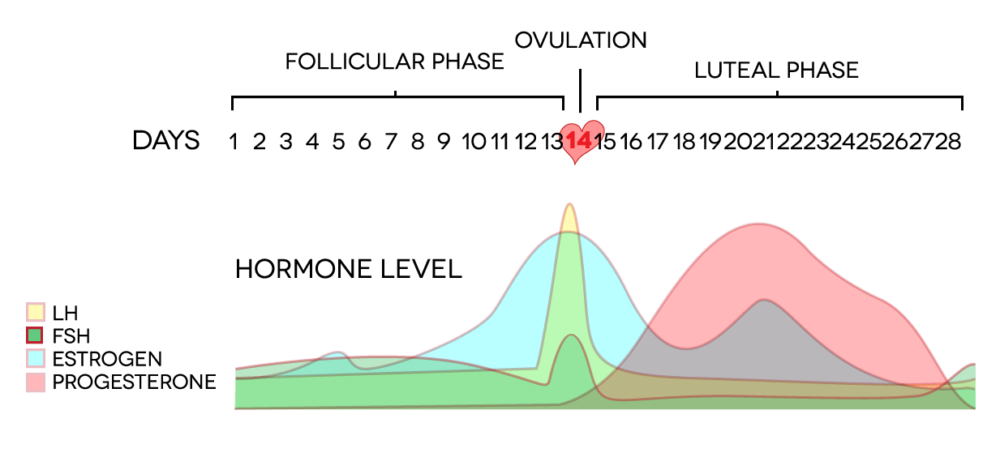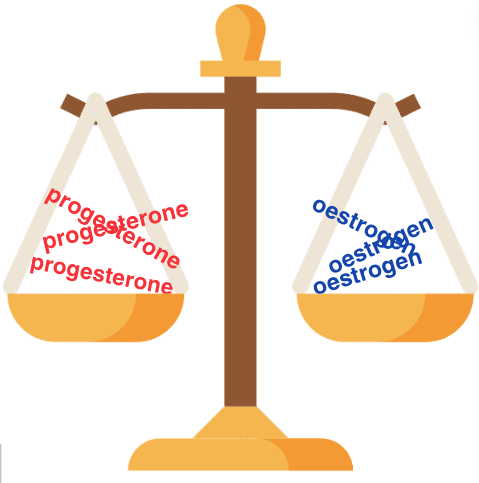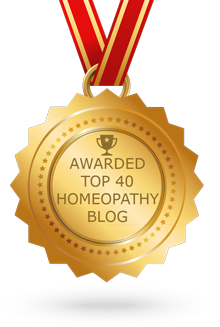If you look around in the media, you might notice that articles on menopause have exploded recently. It’s not like menopause is a new thing, and if you were to really think about how many women are suffering, it’s almost as though menopause could be an illness given the many and varied symptoms it seems to bring about.
But is it really menopause causing all of these issues? Or are we blaming something which just happens to be removing a layer of protection that previously allowed us to “get away with” more potentially damaging behaviours in our past lifestyles? What if those issues supposedly caused by menopause have actually been brought about by those not so healthy lifestyle habits over the course of a lifetime? These habits (both physical such as a bad diet as well as those that bring us stress) cause a build up of inflammation and oxidation slowly cooking away under the surface. I can’t highlight enough the effects of long term stress and the fall-out of chronically high stress hormones, when it comes to what we experience during peri- and post menopause.
So, if inflammation and stress hormones affect us so badly in peri and post menopause, what then can we do about it?
Why does menopause expose our weak points?
Like certain other situations (think Epstein Barr or glandular fever, and Covid to name a couple), the
process leading to menopause, called perimenopause, seems to bring to the surface our vulnerabilities both on the physical as well as the mental and emotional levels. There are some lucky women who just sail through this process, and they don’t notice a thing. Then there are the ones who liken the process to the worst forms of hell. Here are some of the things I have found out in my journey of discovery about why some women struggle so much at this time.
Hormones and havoc
Our delicately balanced hormones are incredibly sensitive to stress, uncontrolled high blood glucose and toxins. If we don’t have fabulous liver health and function, we are less able to break down the byproducts of our hormones, which can also still exert an effect. If we don’t sleep well or stay up too late in bright lights this can also put our hormones out of whack.
Here is an image of what our ovarian cycle “should” look like if we are in our fertile years and have healthy, balanced hormones. The cycle has two parts – one during which oestrogen is a major player, which then triggers ovulation, and then the second part where progesterone is a major player. You might have noticed that many women who are still menstruating or still have an ovarian cycle, have the worst time in the week before their period, when progesterone should be at its peak.

A few things need to happen if this process is to run smoothly. First of all, a woman needs enough oestrogen (as well as FSH and LH plus enough “eggs” left in her ovaries) in order to ovulate. If she doesn’t ovulate, then the process that sets off progesterone production just does not happen. Why is this so important? Because especially in perimenopause in the early days, we often have enough oestrogen. Sometimes we even get big oestrogen surges which send us over the edge. Often, we also have issues with our liver function which then means we can’t properly break down the oestrogen and it lingers in our system, further increasing our oestrogen power.
We also have many xenoestrogens in our environment such as those in plastics and other chemicals, which also exert an oestrogenic effect on us. And even if we don’t technically have huge amounts of oestrogen, it’s usually the case that we have even less progesterone if we were to compare the two and how much there should be of each. All of these circumstances lead to a relative lack of progesterone and relatively too much oestrogen. If the gap is extreme enough, it can make our lives a living hell.
Why is Progesterone so important?
Progesterone is one of our feel good hormones. In the second trimester of pregnancy, many women find themselves glowing and feeling really good. This is the time progesterone is at its highest levels, more even than any other time in a woman’s life. Then a couple of days after she gives birth, there’s a massive drop in progesterone and they call it the day three blues. This is when the milk comes in and all kinds of uncomfortable things happen alongside that progesterone drop, but it really does send many women into an emotional spiral which they then need to slowly climb out of. Usually all it takes is some moral and physical support while she recovers. Other times she may need more interventions such as counselling, natural therapies support or medication.
This example highlights the importance of adequate progesterone production. Unfortunately, though, progesterone begins to decline from our mid thirties onwards. This is one of the reasons why many women begin to have issues with heavy bleeding, uterine fibroids, polyps and other issues leading to what is flatteringly called “bulky uterus” as we reach middle age. A common hormonal picture for middle aged women and those going through perimenopause is a relative excess of oestrogen and not enough progesterone to balance it out.

Progesterone “opposes” the effects of oestrogen

Think of a tiny see-saw. At one end is progesterone and the other oestrogen. If oestrogen is relatively high compared to progesterone, we call this oestrogen dominance. Oestrogen is proliferative, meaning that it causes things to grow. When we are pregnant, that’s great. When we are about to ovulate, that’s also wonderful. There are many situations where oestrogen is very valuable for our bodies, and many post-menopausal women find themselves in states of depression as well as thinning and drying out of mucous membrane linings, thinning of skin as well as all kinds of other issues as a result of low oestrogen.
But…
We also have major problems with low progesterone, especially earlier on in the perimenopausal process. Progesterone keeps inappropriate growth in check, it acts as a sedative and is anti-inflammatory. Progesterone is also protective of thyroid function, helps maintain a good balance of gut flora (the good bacteria that is) and therefore can reduce the possibility or impact of gut inflammation and food intolerances. This little list might give some insight into why we can suddenly develop issues with foods we’ve been fine with before, as well as getting body aches, brain fog and horrible anxiety as well as sleep disturbances during perimenopause. Our bodies are literally going into withdrawal from these hormones, and this can bring about a massive increase in inflammation. Low progesterone can also lead to irregular periods, spotting and headaches, not to mention fatigue, low mood, reduced confidence, memory issues, anxiety and irritability.
Why are some women fine and others suffer?
If we found the perfect test to check hormone balance and compared those who had no suffering during perimenopause and beyond, compared with those who did suffer, I would eat my repertory if the outcome was not linked in some way to progesterone levels. What I’ve seen in clinic time and time again is the picture of a woman who has had a lot of stress in her life. Trauma, abusive relationships and other chronic stressors are very powerful hormone disruptors.
The massive effects of chronic stress
Instead of the nice hormonal cycle mentioned above, in chronic stress the priority of the body is surviving. There is a different hormonal picture that dominates, around cortisol and adrenaline. Our blood glucose is increased in case we need to run or fight, and our immune system is slowly compromised, along with a healthy reproductive system. Instead, we have the lion’s share of the body’s resources being put towards readying it for immediate action in case there is a marauding bear in our path.
It doesn’t matter to the body whether there is actually a physical threat or a more subtle emotional/mental threat. Our bodies can’t tell the difference and react in similar ways. In survival mode, we are not prioritising our ability to reproduce. We are also not giving enough resources to properly digest and absorb our nutrients, and we will definitely not be completely able to rest and relax, which is when our best repair processes happen. Everything is put on hold, and we are then subconsciously waiting for a mysterious time in the future when all those life-affirming things can happen.
We tell ourselves things like, “when this latest deadline is over, I will find the time to properly relax and maybe even take up meditation.” Or “when my kids grow up a little bit more then I can work on my health.” Until then, we may find ourselves in a holding pattern of constant stress, bathing us in a cocktail of stress hormones. Then, along comes perimenopause and we find we can no longer “get away with” a big night out on the champagne, or a chocolate binge. We may find ourselves struggling to get to sleep at night or waking up at some ungodly hour unable to get back to sleep. We might be wide awake in the dead of night and exhausted when the sun comes up.

Hormones are really powerful substances, and we only need the tiniest trace amounts to influence our entire brain chemistry (not to mention that of our bodies). This means that even miniscule fluctuations can make an enormous difference. For this reason, they are notoriously difficult to measure in blood or urine testing.
Stress and progesterone levels in menopause
As mentioned earlier, once we stop ovulating, the ovaries stop making progesterone. If we are super stressed, we may not even ovulate. Even if we do ovulate, if we are super stressed our ovaries make a whole lot less progesterone. After we stop ovulating for good, the main place we can produce progesterone is our adrenal glands. So, here’s the clincher. If our adrenal glands are busy pumping out masses of stress hormones, we won’t be making much progesterone, that’s for sure.
And guess what the most stressful time of a woman’s life usually is? There have been a few studies trying to work this out, but one of the most disturbing studies found that suicide in women is highest in the UK between the ages of 45-49 years of age. This study found that it wasn’t so much the external stress but internal experience of stress, and reduced resilience in the face of stressors. Not to mention the fact that our inner hormonal landscape is super sensitive to any kind of stress as well, leading to a vicious cycle.
So, what can be done to help the situation?
One of the keys to the progesterone puzzle is magnesium. Our cells find it difficult to take on magnesium in times of stress, so we dump it right when we need it the most. Plus, our soils are quite low in magnesium as well as zinc, which means most of us are very depleted in these very important nutrients. Signs of magnesium deficiency include muscle cramps, feeling wired but tired, and chocolate cravings especially at certain times of the cycle if it is still occurring.
Zinc is also essential to healthy hormone balance as well as immune function, healthy gut lining and skin, as well as mental health. Zinc is also low in our soils as well as prone to being dumped in the same way as magnesium during times of stress.
Gentle exercise helps in so many ways from clearing metabolites of stress as well as reproductive hormones from the tissues to helping increase our happy hormones.
Stress reducing practices such as yoga nidra and other meditation practices can make a huge difference to our overall health. It may not seem like it, but there have been quite a few studies these days that have shown a significant benefit.
On the subject of stress, it may also be helpful to find a natural health modality that assists in bringing greater understanding and relief of the underlying stress triggers which bring about a stress response. Constitutional homeopathy can be fabulous for this, and during perimenopause we often find ourselves seeking deeper understanding and connection both with ourselves and others in our lives.
Supporting liver health is absolutely vital to healthy hormonal functioning, as well as good immune function, as well as the ability to detoxify all kinds of nefarious substances and also for our mood! This means avoiding alcohol, sugary foods and bad quality fats if we want to have good liver health. Also, the change of hormones makes it increasingly challenging to maintain liver health for a whole bunch of reasons. We may need further help such as liver herbs and nutrients. Some of these include Glutathione, NAC, zinc, vitamins E and A (in moderation), and other antioxidants. Herbs include Milk Thistle, Globe Artichoke, Dandelion and Withania.
Sleep hygiene is absolutely essential during times of hormonal upheaval. Making sure we don’t saturate ourselves in artificial light, especially just before bed, is critical to a good night’s sleep. As is getting a good dose of sunshine on a regular basis during the day. I can’t emphasise this enough. We are so removed from the natural diurnal patterns of nature that it has begun to affect our hormones in ways we can’t even imagine.
Here are also some foods that help raise progesterone levels. The subject of nutrition to support peri- and post menopause is a huge one with a lot of individualisation but always make sure to eat foods that make you feel good in yourself in the longer term.
If you’re doing all these things and still haven’t been able to shift your symptoms, it might be time to book in to see someone who can give you some more individually tailored treatment and support you through what can be a journey towards greater freedom. Natural therapies has a huge amount to offer women struggling with all kinds of typical and not so typical symptoms, and us natural therapists try our best to get to the heart of what is going on for you, both on the physical as well as the mental/emotional levels. Homeopathy especially can offer so much support if there is a history of extreme stress such as trauma and other mental/emotional elements that need to be addressed.
Whatever your journey has been, whether you are yet to enter into this time of change, or are smack bang in the middle of it, or out the other side, the menopausal journey is one that is revered in ancient cultures. We in the west tend to see it as a loss, given how much value the mass media puts on young, fertile, non-sagging bodies. Many cultures, however, see the menopausal process as a privilege given how rare it was to survive the ravages of tribal life in ancient times. Those who made it to older age were revered for their wisdom, and the elders held a special kind of power that emanated from beyond the physical body.
Somehow, in all the sexy advertising, we’ve lost that sense of reverence for our elders, which means it’s up to us to love and nurture ourselves through this transition. After all, once the baby-making software has been uninstalled, we have an incredible wealth of other amazing stuff to offer.
- The importance of Muscle Mass in menopause - 12/03/2025
- Penny’s gluten free bread recipe - 14/10/2024
- Children and bedwetting: What can parents do to help? - 01/10/2024



